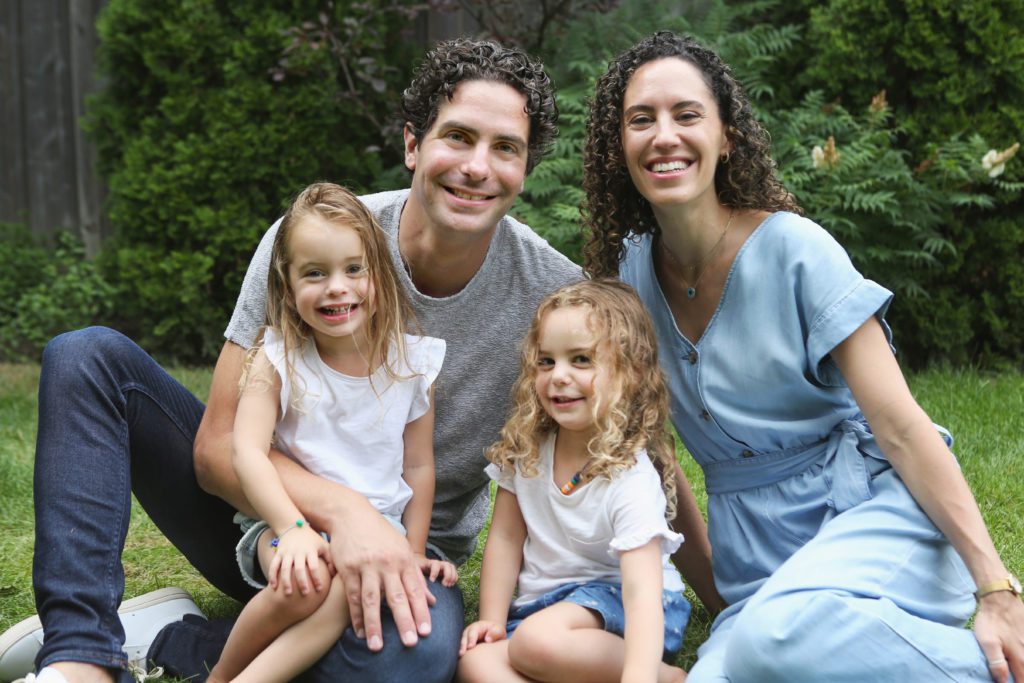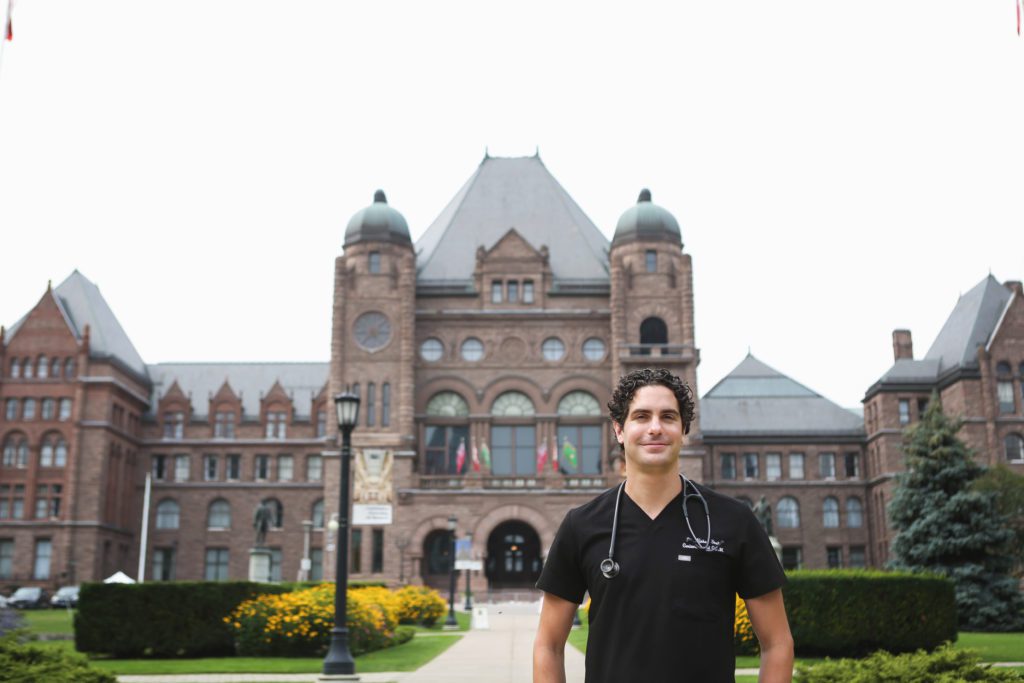Dig below the surface of any geriatrician and you’ll most likely find an abiding love for their grandparents. Nathan Stall is no exception.
The young geriatrician at Sinai Health System has always had a close connection to his grandmother, who he says has been one of his main motivations to work in the field.
“I think many geriatricians will tell you that we all had really close relationships with our grandparents,” says Stall. “That was a huge driving force during the pandemic and continues to be.”
When COVID-19 hit and long-term care homes started shutting residents from the outside world, Stall grew concerned for his grandmother, who resides in a retirement home. He says he initially wanted to be available as a clinician to support older patients, but soon realized his research at the University of Toronto’s Dalla Lana School of Public Health could be just as useful.
“A colleague came up to me in the hallway and said, you know, we should develop a simple tool to help health-care systems predict capacity in the system,” says Stall. “It was something we did in a few days, had it reviewed, submitted it rapidly to a peer-reviewed journal and had it posted as a pre-print.”
The online tool has helped health-care systems determine the maximum number of new COVID-19 cases they can manage. Stall worked closely with Ontario’s Ministries of Health and Long-Term Care to inform other experts on how long-term care outbreaks were happening and what factors were associated with spread.
Stall also worked with the caregiving community to develop a policy to appoint designated essential caregivers who would be allowed in residents’ homes while restrictions were in place. This was eventually pitched to the ministry and came to fruition last fall.
His research and policy work on long-term care led to him being offered a position as the assistant scientific director of Ontario’s COVID-19 Science Advisory Table, a post he assumed officially in January.
“That was sort of how this whole pathway started from being a geriatrician and PhD student to diving headfirst into all this to help wherever I could, both on clinical and research fronts,” he says.
While this may seem like a clear pathway, Stall says it came with its challenges. While he was always aware elderly individuals were an “overlooked population” and that “the long-term care sector was vulnerable, seeing the extreme concentration of deaths in a short amount of time” took an emotional toll.
Stall says it was difficult at times to stick to his mantra of “attack ideas, not people.”
“I think we don’t often identify with frail, older, cognitively impaired people who live in long-term care homes,” says Stall. “It was really traumatizing to see. In addition to the incredible pain, suffering and trauma that families and caregivers will need to live with for years, it was also traumatizing professionally to see first hand how this sector could be directly overlooked.”
He says one of the greatest tensions he’s felt throughout the last year of work is “wanting to be able to engage with these decision-makers on one hand, but on the other hand wanting to speak the truth and advocate for what was right.”
With long-term care a hot button topic for much of the pandemic, Stall says it was difficult at times to stick to his mantra of “attack ideas, not people.”
To combat his frustration at times, he says it helped to step back and remember that he was simply there to inform.
“At the end of the day, we have to function within the system that we are working in,” says Stall. “I think it made me realize doctors and scientists are generally quite apolitical, but it forced us to (…) understand the mechanics of government and policy in a way that we normally wouldn’t have to.”
To have a greater voice “within the system,” Stall resigned from the Science Advisory Table in August – he had begun to run for office. He is the Ontario Liberal Party candidate in the Toronto-St Paul’s riding for the 2022 provincial election.
Stall says he believes the science table should continue to exist past the pandemic. To him, a table that’s independent, transparent and works on key issues impacting the health-care system is greatly beneficial.
Stall says his time on the table emphasized the power of collaboration and how working with multiple experts can be extremely helpful. He adds that while many of these individuals ended up not being recognized, he admires them deeply.
“You often strike out many more times than you hit singles, let alone home runs,” he says. “But I think we have seen that when you give data to people who know how to use it (…) a lot of good comes out of it.”
This profile was published as part of the Pillars of the Pandemic series – brought to you by the Dalla Lana School of Public Health and Closing the Gap Healthcare. We will release new profiles in the coming weeks, with 13 people being honoured in total.
Update: The timing of Stall’s resignation from the Science Advisory Table has been specified for greater clarity.




The comments section is closed.